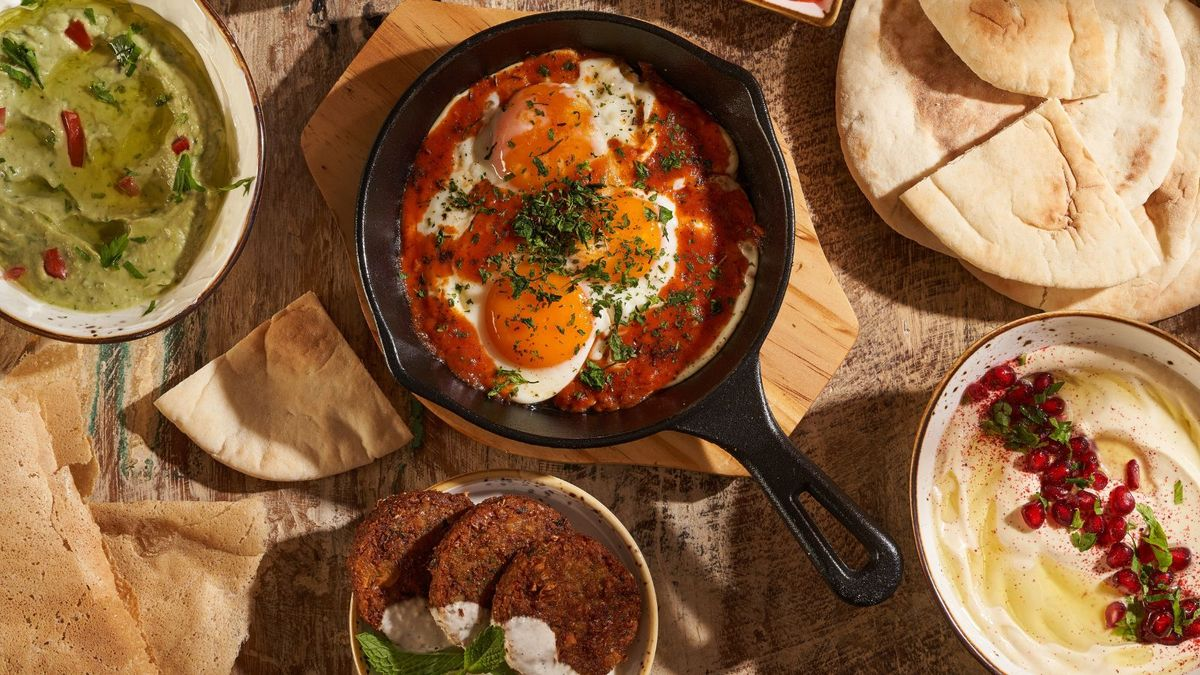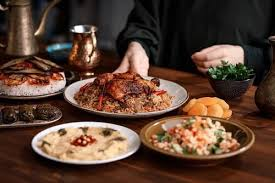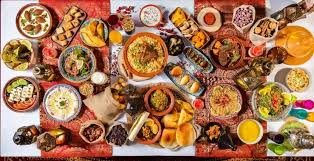Now Reading: Discover the Authentic Flavors of Traditional Emirati Food in Dubai!
-
01
Discover the Authentic Flavors of Traditional Emirati Food in Dubai!
Discover the Authentic Flavors of Traditional Emirati Food in Dubai!

Table of Contents
The United Arab Emirates (UAE) is famous for its stunning skyscrapers, golden deserts, luxury shopping, and vibrant culture. But beyond these attractions, there is one treasure that connects the past to the present — Traditional Emirati Food. For those visiting the UAE or anyone interested in Middle Eastern cuisine, learning about Emirati food opens the door to centuries of rich history, hospitality, and flavor.
A Taste of the Past

Emirati food reflects the simple desert life of the Bedouins, the bounty of the Arabian Gulf, and the agricultural richness of oasis farms. Before the discovery of oil transformed the nation, life in the UAE revolved around fishing, pearl diving, and date farming. Therefore, the traditional food is deeply linked with ingredients such as fish, lamb, camel meat, rice, dates, and spices like saffron, cardamom, and turmeric.
Each dish tells a story — of families gathered in the desert, fishermen returning with their catch, or traders bringing spices from India and Persia.
Must-Try Traditional Emirati Dishes

If you are eager to explore the authentic flavors of the UAE, here are some traditional dishes you simply cannot miss:
1. Al Harees
A simple but beloved dish, Al Harees is made of wheat, meat (usually chicken or lamb), and a pinch of salt. It is slow-cooked in a clay oven for many hours, resulting in a smooth, porridge-like texture. Traditionally enjoyed during Ramadan and special occasions, this dish reflects the patience and care of Emirati cooking.
2. Machboos (Makbous)
Similar to the Indian biryani but with an Emirati twist, Machboos is a fragrant rice dish cooked with meat, spices, dried lemon (loomi), and vegetables. The dried lemon gives the dish its unique sour taste. Machboos is often the centerpiece during family gatherings and festive meals.
3. Balaleet
This sweet and savory dish is a surprising combination of vermicelli noodles, sugar, cardamom, saffron, and a layer of scrambled eggs on top. It is commonly served for breakfast, but its mix of flavors makes it perfect for any time of day.
4. Luqaimat
If you have a sweet tooth, you’ll love Luqaimat — delicious fried dough balls, crispy on the outside and soft inside, topped with date syrup and sesame seeds. This dessert is very popular during the holy month of Ramadan and at local festivals.
5. Stuffed Camel
Considered one of the most luxurious and grand Emirati dishes, stuffed camel is usually prepared for large traditional weddings or celebrations. The camel is stuffed with lamb, which in turn is filled with chicken, rice, and eggs — a meal that symbolizes generosity and wealth.
6. Majboos Samak (Spiced Fish and Rice)
Given the UAE’s long coastline, fish is a key part of Emirati cuisine. Majboos Samak is a dish where fish is seasoned with local spices and served over a bed of rice. Freshly caught fish such as kingfish or hammour is often used.
7. Khubz (Emirati Bread)
Khubz is a type of traditional bread cooked in clay ovens or on a hot griddle. Served with cheese, honey, or fresh herbs, Khubz is a daily staple and also part of ceremonial meals.
8. Dates and Camel Milk
No mention of Emirati food is complete without dates and camel milk. Dates have been a vital source of energy in the desert, while camel milk is rich in vitamins and considered healthier than cow’s milk. They are often served together to welcome guests, symbolizing hospitality.
The Importance of Hospitality in Emirati Food Culture
In Emirati culture, food is not just nourishment; it is a way to show hospitality and respect. Visitors to Emirati homes are traditionally greeted with coffee (Gahwa) flavored with cardamom and saffron, along with fresh dates. Serving food generously is a symbol of warmth and welcome.
Even in restaurants, you’ll find that portions are large, and the service is warm — a reflection of the Bedouin values of generosity and community sharing.
Where to Try Authentic Emirati Food in the UAE
Many travelers wonder where they can taste these traditional dishes. While international restaurants are everywhere in Dubai and Abu Dhabi, authentic Emirati cuisine can be found in these popular spots:
- Al Fanar Restaurant & Cafe (Dubai, Abu Dhabi) – A famous place for tourists looking for traditional flavors in an old-style Emirati setting.
- SMCCU (Sheikh Mohammed Centre for Cultural Understanding) – Offers cultural meals that introduce tourists to local dishes in a family-style dining setup.
- Local souks and street stalls – Especially in Sharjah and the old parts of Dubai, small vendors sell fresh Khubz, Gahwa, and Luqaimat.
Modern Twists on Traditional Favorites
Today’s chefs are giving a modern touch to Emirati classics. Dishes like camel sliders, date-infused ice cream, and saffron-flavored lattes are popping up in trendy cafes. This fusion of tradition and innovation keeps Emirati cuisine alive and exciting for both locals and visitors.
Why Traditional Emirati Food is Gaining Worldwide Attention
Emirati food is being recognized globally for its simplicity, health benefits, and rich flavors. Ingredients like dates, saffron, turmeric, and seafood are increasingly valued in healthy diets. Moreover, the charm of experiencing something deeply rooted in Arabian culture appeals to curious travelers and food lovers everywhere.
Food festivals in the UAE often include cooking competitions and tastings of traditional recipes, attracting global chefs and media.
Conclusion: Savor the Heritage, Taste the Culture
Traditional Emirati food is more than just a collection of recipes — it is a connection to the UAE’s proud heritage. Whether you try a simple plate of Harees or the extravagant stuffed camel, each bite carries the story of the desert, the sea, and the warmth of its people.
For tourists, food lovers, and cultural explorers, traditional Emirati cuisine offers an unforgettable taste of the Arabian world. Don’t miss the chance to explore this culinary treasure on your next visit to the UAE.
Read More:- Shobha Realty Launches Its Most Luxurious Project Yet—Full Details Inside 2025





















